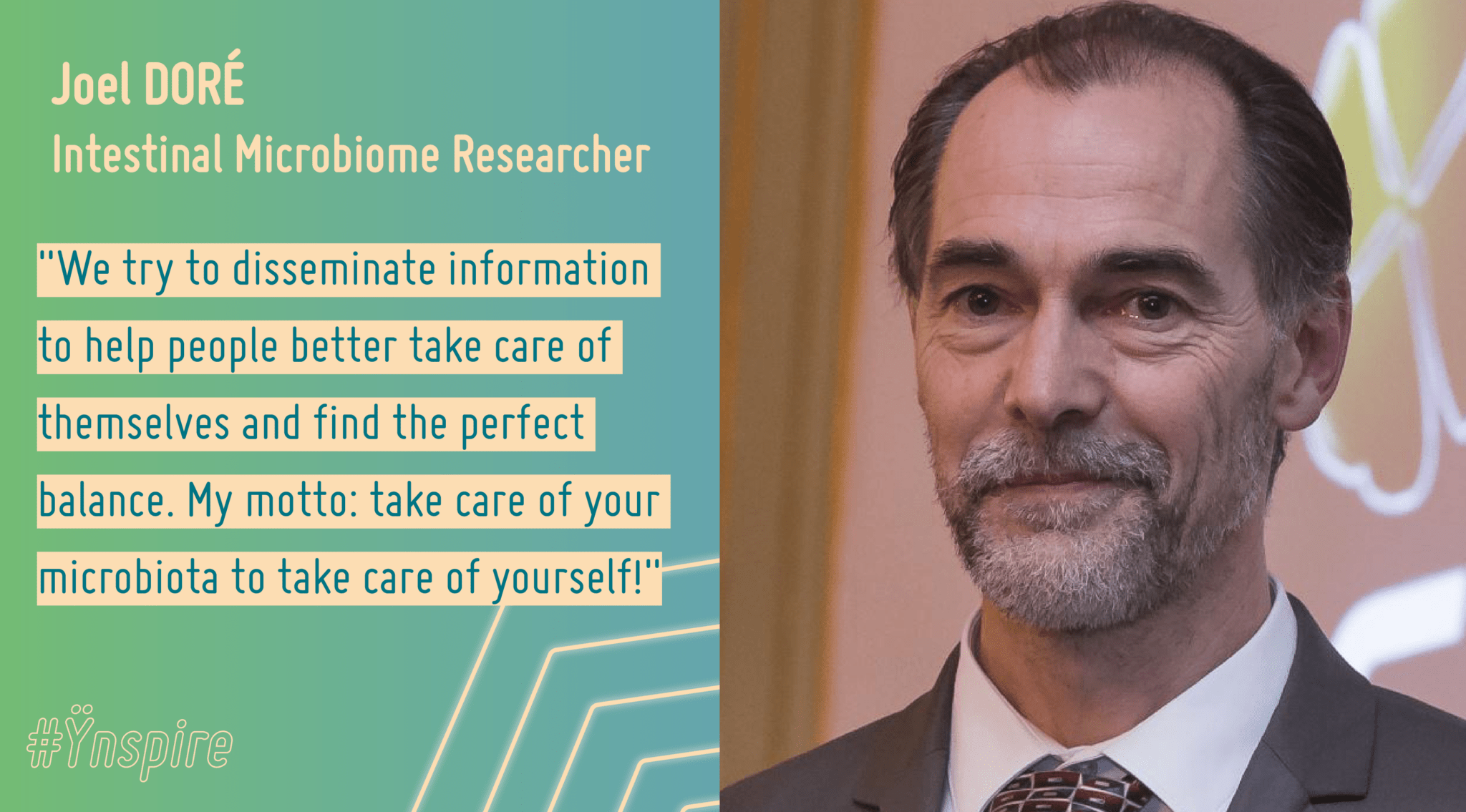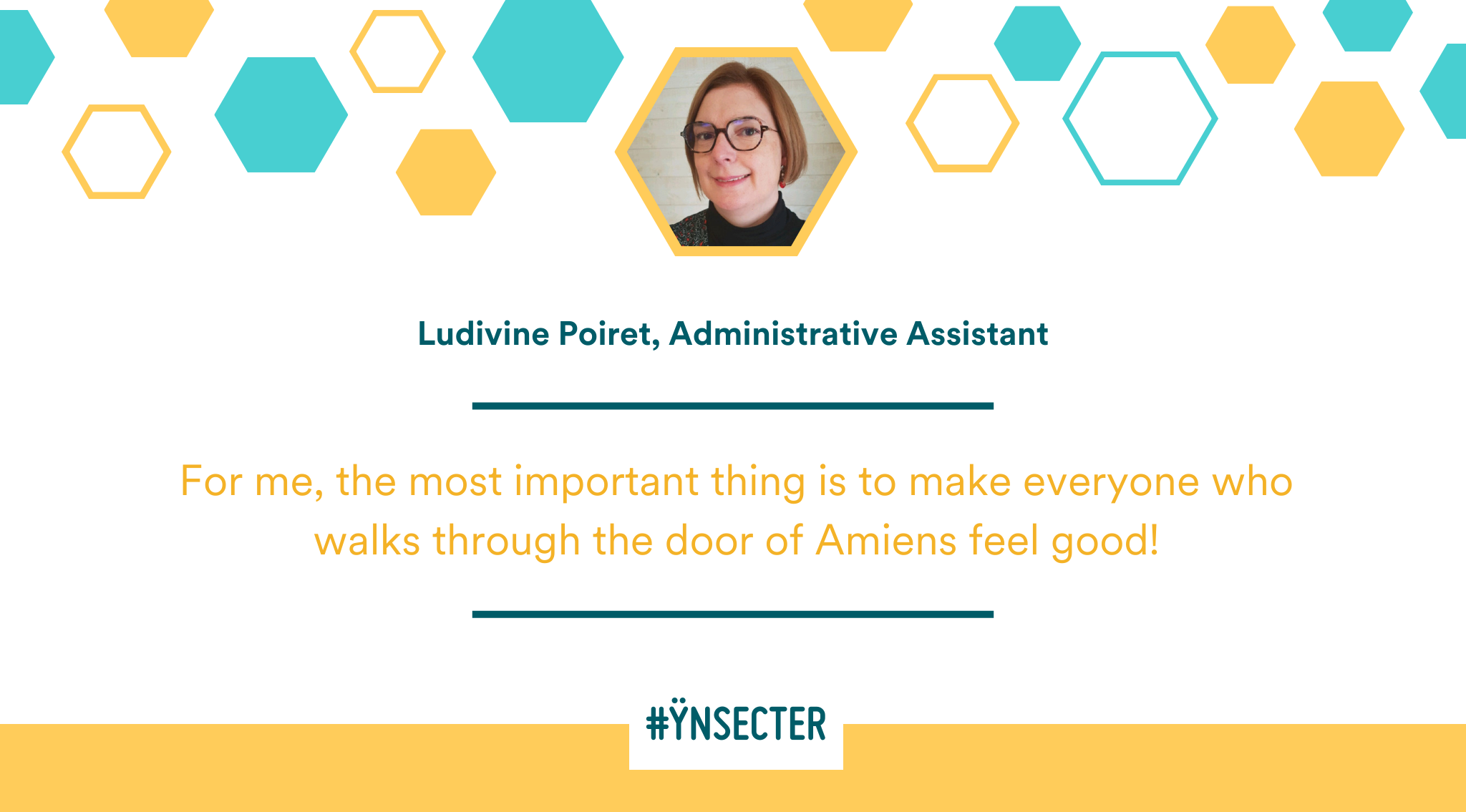What did you study and what is your job now?
I went to AgroCampus Ouest in Rennes, in the ‘80s, where I completed a Master’s Degree in Animal Physiology, followed by a PhD in Intestinal Microbiology at the University of Illinois at Urbana-Champaign. Today, I am Research Director at INRAE as well as Scientific Head of the MetaGenoPolis Center of Excellence in Microbiome Analysis. I am currently studying the links between the intestinal microbiota and chronic diseases, towards improved diagnoses and treatments.
In a few words, could you explain what is the intestinal microbiota?
The intestinal microbiota is the community of microorganisms that live in the digestive tract. We are microbial. Our body develops as we age, and with it, our microbiota. Its presence and impact are very real. We establish and maintain a constant interaction with it from the day we are born! These microorganisms provide us with protective functions, vitamins, aid digestion and immune defenses. Overall, they are very important for a well-balanced life!
In your work, you talk about the relationship between microbiota and chronic diseases. Can you explain what it is?
Today, everyone knows that there is a powerful link between the brain and gut. Just as an example: when we have to take an exam, our stress can cause physical pain, unease and discomfort. However, after years of research, we now know that there is a path that goes in the opposite direction, from the intestine to the brain, travelling through blood, the nervous system, etc. For example, when we eat, our intestine sends to the brain small molecules that can regulate our mood. The link between microbiota and chronic diseases operates in the same way: when our microbiota is altered; its malfunction can induce chronic conditions such as metabolic diseases, digestive system disorders, cardiovascular diseases, cancer, etc. We are working to get to the heart of this causality. It’s the classic chicken or the egg question: we still don’t know if microbiota disorders trigger disease, or if disease trigger microbiota disorders. In any case, we function as a complex system for which the host-microbiota relationship is central and its alteration, whatever the initial event, at the core of the risks for chronic diseases.
How can we tell if our microbiota is in bad health?
You just need to listen to your body to know if your microbiota has been compromised: it can manifest through digestive disorders, pain, gut symptoms, etc. These symptoms are on the frontline of microbiota malfunction: when bad, they can spread to other body parts. Today, microbiota and the intestine in general are associated with the uncontrolled development of pathologies of modern societies. Over the last century, so many things have changed in our everyday life: we have become sedentary, everything around birth has changed, technology has evolved and treatments have increased, our diets have changed, as our exposure to chemicals in the environment, for which we were not biologically prepared. All of these factors increase the risk of jeopardizing our microbiota, either directly or indirectly by an alteration of our gut physiology.
How can we take better care of our microbiota?
There are no big secrets here. You just have to make sure you’re responding to its needs: living calmly, i.e. promoting an environment in which you avoid stress, remaining active, and in contact with nature, limiting exposure to chemicals and highly transformed foods, and following a healthy diet. Unsurprisingly, the latter can have a real impact on the microbiota. Bad nutrition is a synonym of “too much”: too much fat, salt, sugar, maybe even alcohol or tobacco. Today, we often hear that eating five portions of fruit and vegetables is ideal to have a balanced diet; but I think it’s necessary to go further, consuming around 20 different fruits and vegetables per week. It would guarantee variety and diversity in nutrient intake; the best option for our microbiota!
Are your research and the results helping diagnosis and the public health?
The results we have obtained, notably on the link between microbiota and chronic diseases, allow for more informed diagnosis. Prevention is necessary because, during the last century, we have seen a drastic increase in the incidence of chronic diseases. The WHO predicts that one person in four will be affected by at least one chronic condition in the near future: today in the USA, one birth in fifty shows signs of autism. Thanks to our research, practitioners will be able to combine results of both blood and microbiota analyses, to help find the best treatment possible. Regarding the general public, we try to disseminate information to help people better take care of themselves and find the perfect balance. My motto: take care of your microbiota to take care of yourself!





